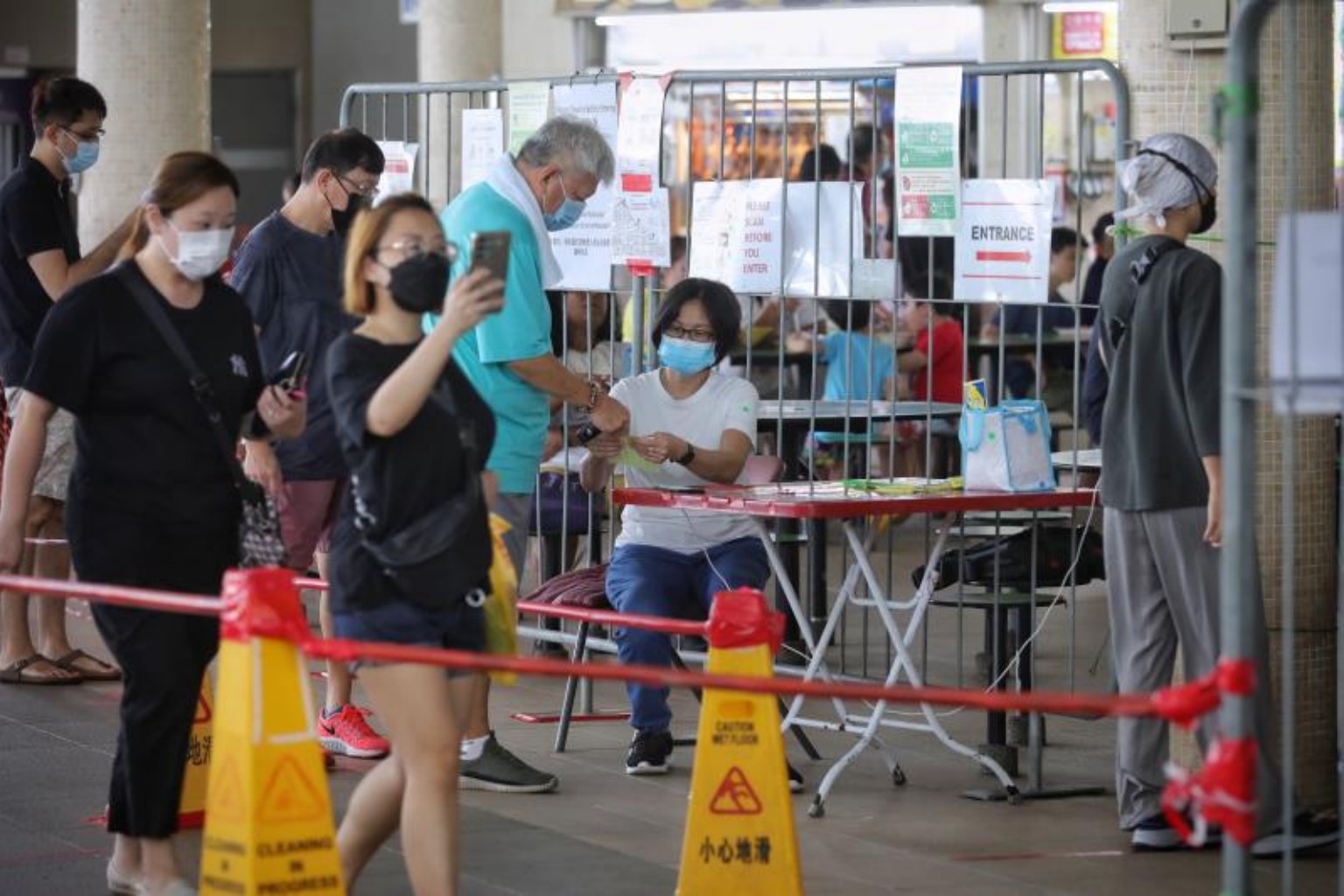Parliament: Law allowing Covid-19 control measures extended to 2023
Sign up now: Get ST's newsletters delivered to your inbox

MPs on Friday supported the extension but called for greater clarity on the path forward and regular reviews of the necessity of Covid-19 measures.
ST PHOTO: KEVIN LIM
SINGAPORE - The law allowing the authorities to impose Covid-19 control measures, such as to prohibit social gatherings, has been extended by one year and is now set to lapse on April 8, 2023.
The amendment to Part 7 of the Covid-19 (Temporary Measures) Act will allow the Government to remain nimble and adaptable to the evolving pandemic situation and face any possible new variants, Senior Minister of State for Health Koh Poh Koon told Parliament on Friday (March 11).
"If Covid-19 ceases to be a threat before the end of this one year, regulations can be repealed and Part 7 can be allowed to lapse," he said.
"However, if more variants and infection waves take hold, the regulations under Part 7 will continue to be important for the protection of public health."
The Act empowers the Government to impose quarantine orders, restrictions on movement or entry to certain places, prohibitions of certain activities, and caps on group sizes, venue capacity and business hours, among other things so as to control Covid-19 transmission.
Dr Koh said these measures, including vaccination-differentiated safe management measures (VDS), remain necessary for now.
"We will take a gradual and calibrated approach even as we move towards a greater degree of normalcy in our communities, businesses, workplaces and travels.
MPs on Friday supported the extension but called for greater clarity on the path forward and regular reviews of the necessity of Covid-19 measures.
Mr Yip Hon Weng (Yio Chu Kang) said specific indicators could be used to determine if measures should be extended. For instance, an extension by a certain period of time could be triggered if the number of deaths hits a particular rate.
"We need more specific goal posts and simplified measures," he said. "This is so that the light at the end of the tunnel does not seem out of reach."
In response, Dr Koh said the authorities monitor indicators like the weekly infection growth rate and deaths, as well as other metrics such as hospital occupancy and healthcare manpower, but there is no single set of parameters that can be relied on.
"We have to remain nimble and take all factors into account in designing any of these restrictions," he said.
Mr Yip also asked if more can be done to nudge those who remain unvaccinated to get their jabs, especially if they are not medically exempted from doing so.
Dr Koh said the protein-based Novavax vaccine has been approved for use here and is set to arrive in the months ahead.
"This will provide those who may have hesitancy receiving the mRNA vaccine an alternative and I hope they do take this seriously and consider getting themselves vaccinated," he said.
"During this recent Omicron wave, the 3 per cent of adults who were partially vaccinated or unvaccinated contributed to 20 per cent of our ICU (intensive care unit) cases, occupied two-thirds of our ICU beds and caused about 30 per cent of the mortality that we see.
"So they do pose a significant load on our healthcare resources and therefore, VDS is still necessary to protect the unvaccinated and prevent our healthcare system from being overwhelmed."
Workers' Party chairman Sylvia Lim (Aljunied GRC) said the extension of the law is prudent and sensible given the ongoing spread of Covid-19, but she added that it is "a matter of time before control measures should be further rolled back or discontinued altogether".
She said the fact that Covid-19 is spreading widely through the population even with high vaccination rates - coupled with the availability of treatment options like antiviral oral drugs - should prompt the Government to continue to review whether the control measures that are currently in place remain fit for purpose.
Dr Koh said Covid-19 therapeutics are meant to mitigate the risk of severe illness, while vaccination is more preventative and remains key.
He said adults who were not fully vaccinated and were infected by the Omicron variant were 18 times more likely to end up in the ICU and 38 times more likely to die from Covid-19 compared to adults who are fully vaccinated and have received booster shots.
Unvaccinated children are also more likely to suffer multi-system inflammatory syndrome, and unvaccinated adults are more likely to suffer "long Covid-19" or lasting symptoms, Dr Koh added.
"The regulations under Part 7 will continue to be important for the protection of public health," he said.
"A one-year extension will provide the flexibility for us to adjust and calibrate Covid-19 measures accordingly."


